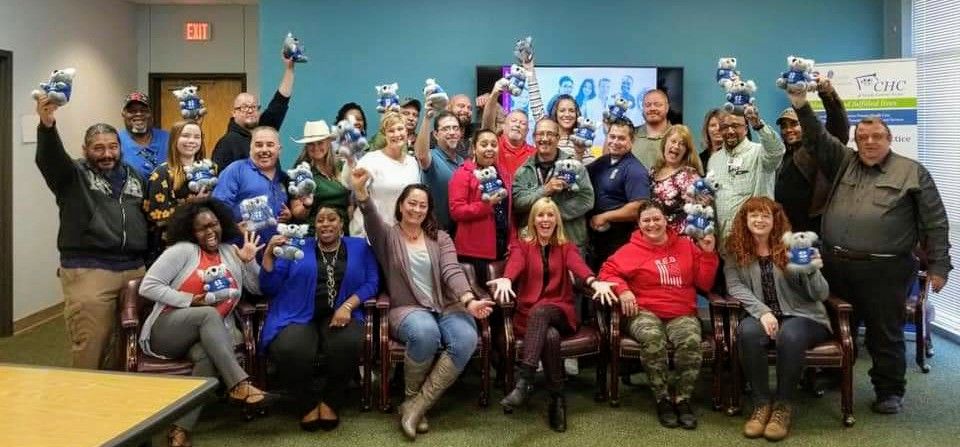Mental Health First Aid
Let us welcome back Veterans One Stop Program Manager Bobbi Stewart and Assistant Peer Service Coordinator Taylor Jones who both recently came back from training in Bastrop, Texas. During the first week of December, they attended the Mental Health First Aid (MHFA) Train the Trainer Course.
MHFA is a world renowned course that teaches how to identify, understand, and respond to signs of mental illnesses and substance use disorders. MHFA was created in 2001 by Betty Kitchener, a nurse specializing in health education, and Anthony Jorm, a mental health literacy professor. Kitchener and Jorm run Mental Health First Aid Australia, a national non-profit health promotion charity focused on training and research. Mental Health First Aid USA adapted the program of Mental Health First Aid Australia.
The training gives the skills needed to reach out and provide initial help and support to someone who may be developing a mental health or substance use problem or experiencing a crisis. More than 2 million people across the United States have been trained in Mental Health First Aid by a dedicated base of more than 15,000 Instructors, who are also called Mental Health First Aiders. They are anyone who wants to make their community healthier, happier, and safer for all. Just as CPR helps assist an individual having a heart-attack; Mental Health First Aid helps assist someone experiencing a mental health or substance use-related crisis.
In the Mental Health First Aid course, we learn risk factors and warning signs for mental health and addiction concerns, strategies for how to help someone in both crisis and non-crisis situations, and where to turn for help. Topics covered include depression and mood disorders, anxiety disorders, trauma, psychosis, and substance use disorders. Mental Health First Aid teaches about recovery and resiliency – the belief that individuals experiencing these challenges can and do get better, and use their strengths to stay well. When you take a course, you learn how to apply the Mental Health First Aid action plan in a variety of situations, including when someone is experiencing: panic attacks, suicidal thoughts or behaviors, non-suicidal self-injury, acute psychosis (e.g., hallucinations or delusions), overdose or withdrawal from alcohol or drug use, and reaction to a traumatic event. The opportunity to practice during the class, through role plays, scenarios, and activities, makes it easier to apply these skills in a real-life situation.
Be sure to be on the lookout for upcoming classes facilitated by Bobbi and Taylor!

Bobbi and Taylor posing with their amazing training group after graduation!
